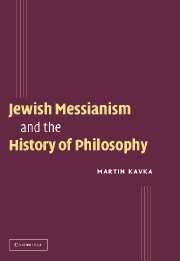Book contents
- Frontmatter
- Contents
- Acknowledgments
- List of Abbreviations
- Introduction: From Athens to Jerusalem
- 1 The Meontological Conundrum: Emmanuel Levinas and Emil Fackenheim on the Athens–Jerusalem Conflict
- 2 Beyond “Beyond Being”: Nonbeing in Plato and Husserl
- 3 Nonbeing as Not-Yet-Being: Meontology in Maimonides and Hermann Cohen
- 4 Nonbeing Ensouled, Nonbeing Embodied: Levinas versus Rosenzweig on the Role of the Other in Messianic Anticipation
- Conclusion: Deepening the Roots of the Jewish Meontological Tradition, or contra the Derridean “Messianic”
- Works Cited
- Index
1 - The Meontological Conundrum: Emmanuel Levinas and Emil Fackenheim on the Athens–Jerusalem Conflict
Published online by Cambridge University Press: 09 July 2009
- Frontmatter
- Contents
- Acknowledgments
- List of Abbreviations
- Introduction: From Athens to Jerusalem
- 1 The Meontological Conundrum: Emmanuel Levinas and Emil Fackenheim on the Athens–Jerusalem Conflict
- 2 Beyond “Beyond Being”: Nonbeing in Plato and Husserl
- 3 Nonbeing as Not-Yet-Being: Meontology in Maimonides and Hermann Cohen
- 4 Nonbeing Ensouled, Nonbeing Embodied: Levinas versus Rosenzweig on the Role of the Other in Messianic Anticipation
- Conclusion: Deepening the Roots of the Jewish Meontological Tradition, or contra the Derridean “Messianic”
- Works Cited
- Index
Summary
Any argument that meontology can resolve the conflict between Athens and Jerusalem, between reason and revelation, must naturally begin with a survey of how this conflict is currently sedimented in philosophy. For even the two serious approaches to the conflict, both of which use the term “meontology” explicitly, contradict each other. I term the first of these two approaches critical. According to this type of thinking, whose representative here is Emmanuel Levinas, the faith that defines “Jerusalem” is not only a valid approach to answering the perennial questions raised by “Athens,” it is perhaps the best approach to these questions themselves. Levinas claims that “Athens” necessarily announces a realm beyond the order of being and the rationally necessary laws that constitute it; “Athens” commands faith. Levinas therefore appears as a philosopher in the Kantian spirit. Kant offered a critical inquiry into the nature of reason, showing that the a priori principles of reason limited the “pretensions to transcendent insight” of dogmatism and speculative metaphysics, and concluded that it was “necessary to deny knowledge in order to make room for faith.” While it is admittedly possible to overstate the overlap between Kant and Levinas, there is nothing that prohibits the reader from noting a family resemblance between Levinas and the Kantian methodologies. Both seek to hollow out a space within philosophy for faith through a limitation of philosophy's proper aegis.
The other serious approach to the conflict is dialectical.
- Type
- Chapter
- Information
- Jewish Messianism and the History of Philosophy , pp. 18 - 41Publisher: Cambridge University PressPrint publication year: 2004



